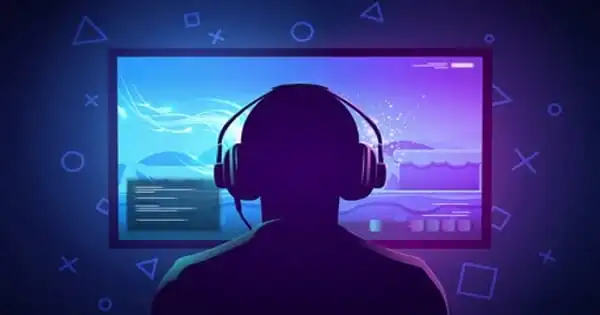As well as increasing activity in specific brain regions, playing video games may have a good impact on a person’s ability to make judgments. This is supported by a recent study that used functional magnetic resonance imaging (fMRI) scans on task-completing game players and discovered significant differences between their brains and those of non-gamers.
Violence has been a major focus of study on excessive gaming, but little has been done to examine good cognitive improvements. These may result from the fact that playing video games frequently necessitates making snap decisions in order to solve challenges, which requires reading and responding to a variety of information.

In a recent study published in Neuroimage, the researchers looked at whether or how playing video games might have affected gamers’ brains. reports on fMRI tests done on players and non-players. Participants were given activities to do during the imaging in order to measure their response times, their ability to make decisions, and their brain activity.
People who play video games for five hours or more per week were considered video game players for the purposes of the study. It included 47 people in all, of whom 28 played video games and 19 did not.
The findings showed that players had faster reaction times and greater decision-making abilities than non-players of video games. Additionally, there was a noticeable variation in the activity of brain areas related to cognitive and sensorimotor processing, which are related to mental function and our capacity to link sensory data with motor movement.
In a press release, lead researcher Mukesh Dhamala, an associate professor in Georgia State’s Department of Physics and Astronomy and the university’s Neuroscience Institute, said, “Video games are played by the vast majority of our youth for more than three hours each week, but the positive effects on decision-making abilities and the brain are not exactly known.
“Our research offers several solutions to that. Once the necessary brain networks have been discovered, playing video games can be used efficiently for training, such as decision-making efficiency training and therapeutic interventions.
Tim Jordan, the study’s principal author from Georgia State University’s Department of Physics and Astronomy, thinks there may be practical uses for the research that could aid young people who have lost their sight. Jordan had been legally blind in one eye since he was five years old, but after taking part in a study that had him play video games with the other eye covered, his visual processing skills improved.
Jordan attributes the development to game training, which, according to the study’s authors, has the ability to improve a variety of skills.
These findings suggest that playing video games may strengthen a number of the subprocesses for feeling, perception, and mapping to action to enhance decision-making abilities, the researchers stated.
These results “start to provide light on how playing video games changes the brain to enhance task performance and its potential implications for enhancing task-specific activity.”
















